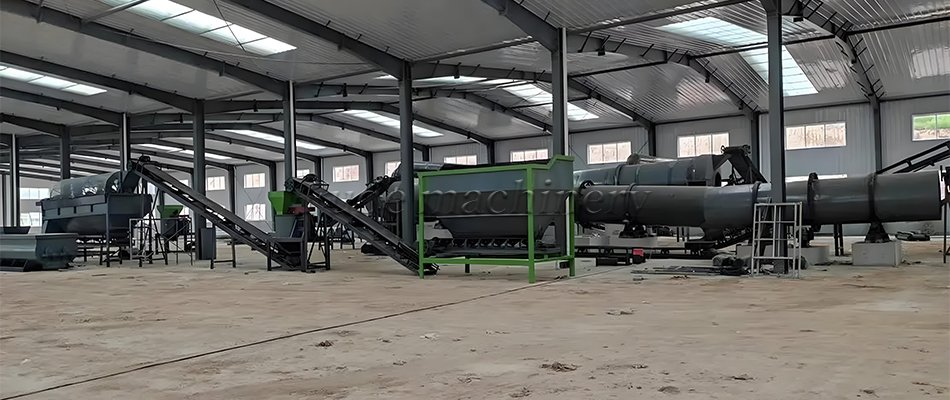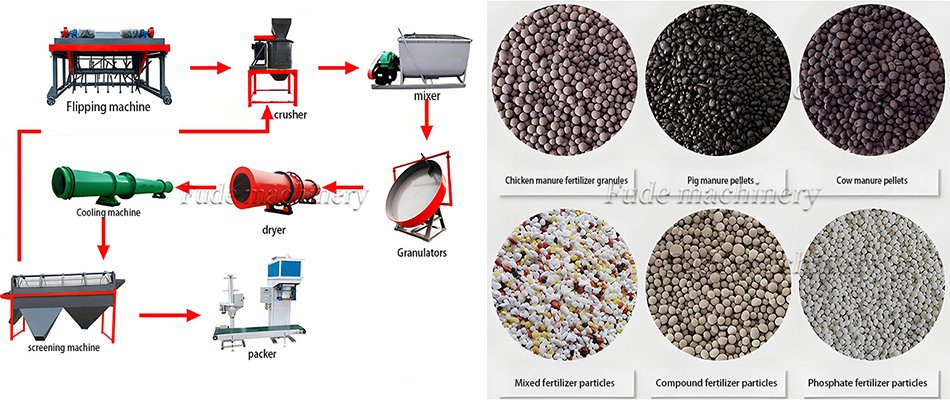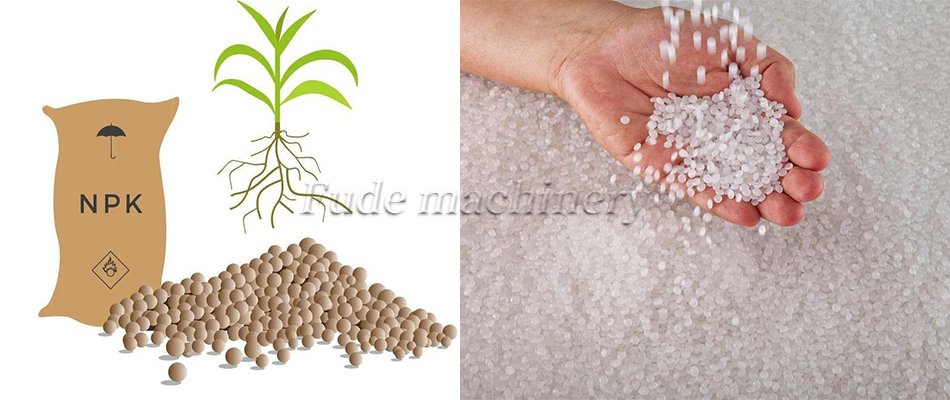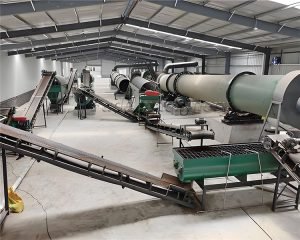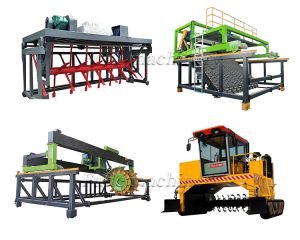Organic fertilizer production line is an important part of today’s agricultural field. With the increasing awareness of sustainable agriculture and environmental protection, the demand for organic fertilizer production lines is growing.
Their main purpose is to convert various organic wastes into valuable organic fertilizers to improve soil fertility and enhance crop quality, while reducing dependence on chemical fertilizers.
Production Line Process
First of all, the raw materials of the organic fertilizer production line come from a wide range of sources, including livestock and poultry manure, crop straw, kitchen waste, garden waste, and so on. These raw materials can be effectively converted into nutrient-rich organic fertilizers when properly processed.
The first step in the production line is usually the pretreatment of the raw materials, which includes shredding, mixing and fermentation. Microorganisms play a vital role in this process by breaking down organic matter and releasing nutrients needed by plants.
The next step is the fermentation of the composting equipment. This is the core process of organic fertilizer production, during which pre-treated organic waste is aerobically fermented under specific conditions (such as appropriate temperature, humidity and oxygen level).
This process not only kills pathogens and weed seeds, but also improves the stability and efficiency of the fertilizer. Normally, the fermentation process takes weeks to months, depending on the type of raw material and environmental conditions.
Once fermentation is complete, the material moves to the further processing stage, which includes drying, crushing, screening and granulation.
Drying removes excess water and improves fertilizer storage stability; crushing and screening ensure uniform fertilizer particles; and granulation helps improve fertilizer application efficiency and facilitates transportation.
Finally, the finished organic fertilizer can be used in agricultural production after packaging and storage. Organic fertilizer can not only provide a variety of nutrients necessary for crop growth, but also can improve soil structure, increase the activity of soil microorganisms and thus promote healthy crop growth.
Urea pelletizing line: key technology for increasing agricultural productivity
In modern agriculture, urea is a widely used nitrogen fertilizer, due to its high nitrogen content, it serves as an important plant growth stimulant. In order to improve the efficiency and convenience of urea application, urea powder granulation technology has been developed. In this article, we will discuss the working principle of urea granulation line, its advantages and impact on agricultural production.
Urea powder granulation is the process of converting fine powder into granular form, which simplifies storage, transportation and application. A granulation line typically includes the following key steps:
- Mixing and preparation: First of all, urea powder is mixed with the necessary additives in the correct proportion to ensure the granules are strong and stable.
- Granulation: The mixed material is passed through a granulator where it is pressed and molded into uniform granules.
- Drying and cooling: Fresh urea granules are required to be dried and cooled to remove excess moisture and increase their hardness.
- Sieving and packaging: Finally, after sieving to remove substandard granules, quality urea granules are packaged for sale or direct use.
Advantages of urea granulation
- Improved fertilizer efficiency: Granulated urea can be more uniformly applied to the soil, reducing losses and increasing nitrogen utilization.
- Convenient storage and transportation: Urea granules are easier to store and transport, reducing losses and waste during transportation.
- Reducing environmental pollution:By reducing nitrogen fertilizer losses, urea granules effectively reduce water body and air pollution.
- Improved application experience:Granulated urea facilitates mechanized fertilizer application, improving efficiency and accuracy.
Impact of urea granulation line on agricultural production
Fude Machinery Urea granulation line not only improves the efficiency of urea utilization, but also contributes a lot to the sustainable development of agriculture.
By reducing nitrogen fertilizer losses and environmental pollution, urea granulation technology provides important technical support for green agriculture. In addition, with the increasing level of mechanization and automation of agricultural production, the demand for granulated urea will inevitably increase.
Urea granulation line plays a crucial role in modern agriculture. Its high fertilizer efficiency, environmental properties and plant growth stimulating effect make it an indispensable part of agricultural production.
With the development of technology and increasing market demand, urea granulation technology will continue to grow rapidly, making significant contributions to global food security and sustainable agricultural development.
 Organic fertilizer equipment,organic fertilizer production line,organic fertilizer equipment factory
Organic fertilizer equipment,organic fertilizer production line,organic fertilizer equipment factory
